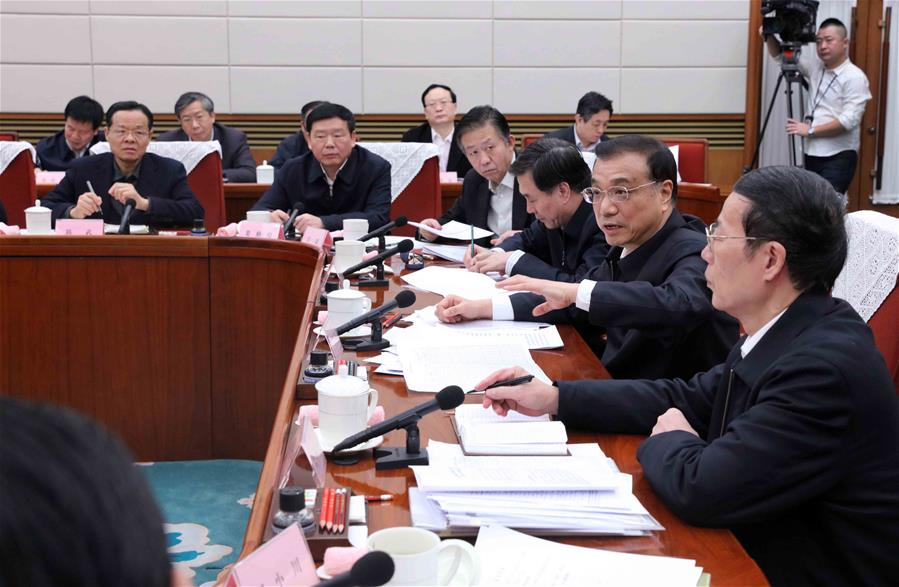Chinese Premier presses VAT reform to boost economic vitality
Xinhua, January 26, 2016 Adjust font size:
|
|
|
Chinese Premier Li Keqiang (2nd R) presides over a symposium on expanding VAT reform to reduce the burden on enterprises and help industrial upgrades, on Jan. 22, 2016. (Xinhua/Liu Weibing) |
Chinese Premier Li Keqiang has called for efforts to expand VAT reform in 2016 to reduce the burden on enterprises and help industrial upgrades.
"VAT reform is an important part of China's fiscal and tax reform. Pilot VAT reform has achieved positive results and expanding it across all industries will reduce tax burdens on enterprises, boost the upgrade of industry and stimulate consumption," according to a statement issued on Monday following a symposium chaired by Premier Li on Friday.
A pilot VAT scheme was tested in 2012 and gradually expanded. This year, China will replace business tax with VAT in the remaining four industries -- finance, construction, property and consumer services, the Ministry of Finance said in December.
From 2012 to the first half of 2015, the measure has resulted in tax savings of over 484.8 billion yuan (75 billion U.S. dollars) for enterprises, accounting for 0.2 percent of GDP in the period, according to an earlier report by China International Capital Corp. Ltd. (CICC), the country's first joint venture investment bank.
Once all industries shift to VAT in 2016, the overall tax saving will be more than 900 billion yuan, or 0.4 percent of GDP, CICC predicted.
VAT can encourage firms to outsource more services rather than adopting a do-it-all business model, promoting the development of the service sector and the upgrading of manufacturing industries, the report added.
To make headway in VAT reform, it is necessary to motivate market entities, the statement said. The government may face some losses in fiscal revenue in the short term, but this will be balanced by future growth, the statement added.
Careful planning is necessary to ensure a smooth implementation of the VAT reform, Monday's statement said, adding a step-by-step manner can avoid adverse effects on the stable running of the economy.
